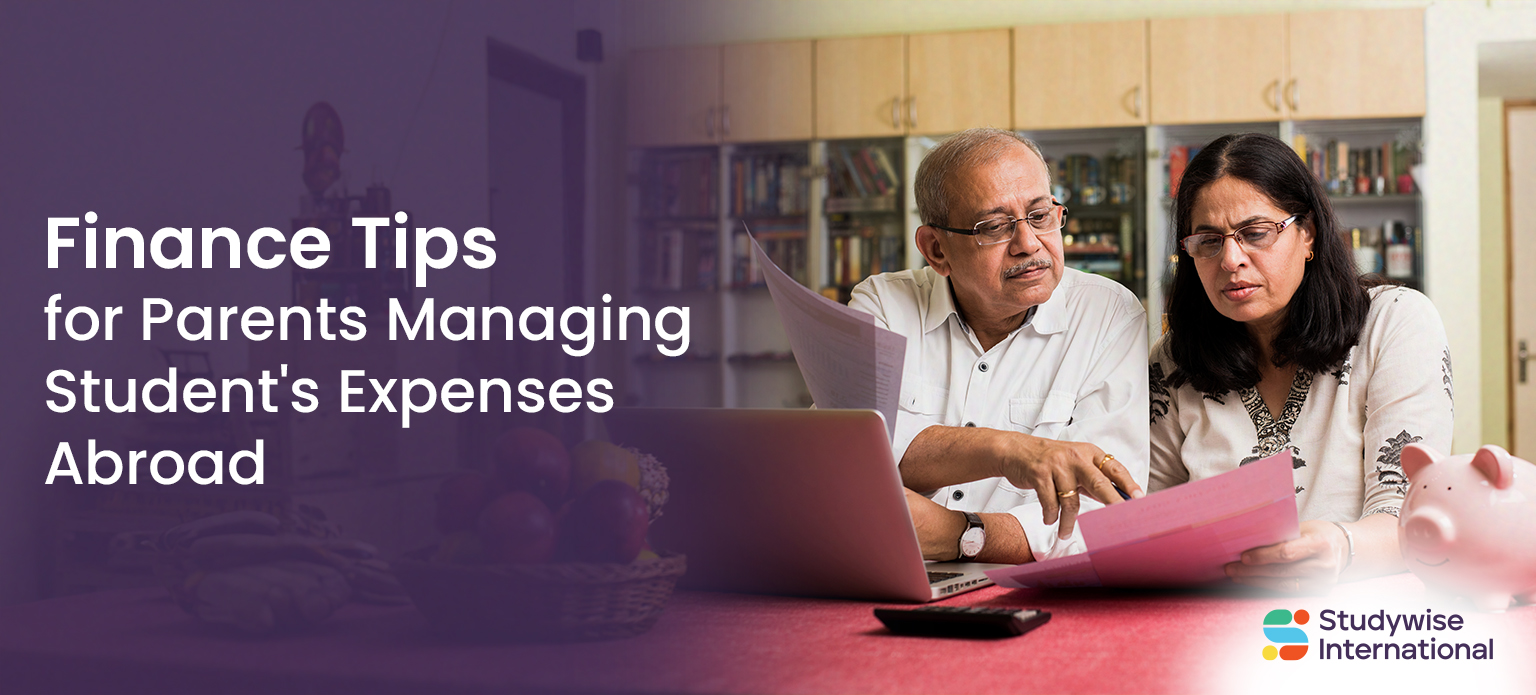
Finance Tips for Parents Managing Student’s Expenses Abroad
- Categories All Study in Abroad Blogs, Studying Abroad
- Date June 24, 2024
As parents, we desire for our children to have access to the best of things. Quality education, exposure, hands-on experience and so on. Our kids learning to take on their own responsibilities is another heartwarming benefit of sending them off to study abroad. Our desires are simple, ain’t they? At the same time, there is no denying that this simple desire comes with a lot of heavy expense. Starting from university and visa applications and English coaching classes to tuition fees, accommodation and travel. The list is ever-developing. As the kids settle into their new lives, the more we can provide, the lighter we feel in our hearts. All this while, there is another thing getting lighter with each passing day – our bank accounts.
Well, that is if you don’t plan your finances right. As the expenses pile up, it is crucial to manage the flow of our money to successfully fund the children’s education. Nonetheless, an unproductive plan can bring more stress in the future. Supporting their today isn’t a good enough reason to fuel your tomorrow. You need financial strategies, today and now.
In the blog, we will delve into the financial strategies and tips for parents to plan and manage their child’s education in a foreign university.
Forecasting Expenses
In numerous cases, students and their parents have no idea of the expenses they will have to bear. As parents, we must take an active part in the location and university. They play a major role in building the budget. As the application process begins, there are payments required towards university application, visa application, English coaching and test fees. After receiving the visa, the next step is to book the flights, look for accommodations and shop to prepare for the stay. While the tuition fee may build a major chunk of the expense, students will also pay for accommodation, transportation, food and leisure. Parents must take these factors into account while forecasting their expenses.
Set a Realistic Budget
Once they have a clear picture with a comparison of options to navigate their budget. Research well to plan ahead for a smoother study experience. It is okay to not be able to afford the whole of it on your own. The information gathered only builds the foundation of your budget and planning strategies. With a realistic budget, parents can encompass various financial strategies to fund their children’s foreign education. As long as they take a practical approach towards their current spending patterns, future expenses and other expenses, they can build a formidable plan.
Do Long-term Financial Planning
During the children’s time abroad, the prices of certain things may increase. Inflation hits hard but the blow is harder when you are spending dollars earned in rupees. The quality of education overseas is irrelevant to the expense. Hence, you may look for countries with high-quality education but low conversation rates. In effect, it is important that your budget consider long-term financial planning to suffice for the duration of the course, and beyond. Research online or consult with the bank to understand the implications of these factors on your assets, investments and savings.
Reconsider Your Investments
If your kid is still young, keep setting aside money for education over time apart from your savings and investments. The longer you plan, the better you will be able to provide. Divide your investment into medium and long-term investment opportunities. Alternatively, if you have a lower time frame to plan your finances, invest in high-risk assets like equity to fend up the impact of inflation or currency fluctuations. However, one must consider their investment capacity, risk tolerance and market situation before making any investment.
Find Financial Aid
There are many forms of financial aid available for international students aspiring to study abroad. From scholarships and fellowships to bank loans and sponsorships, there are a lot of options to visit and dig into. The universities and the government of India as well as the chosen study destination award a variety of scholarships based on the merits, financial needs, leadership and other characteristics of the applicant. Apart from them, there are a handful of fund providers to seek financial assistance from. As for loans, the larger the amount you borrow, the lesser you will have to spend from your pocket. The loan amount can be said with policy premiums, profit and FDs. Whereas, smaller loans reduce debt and speed up the repayment process. Consider both options and choose wisely.
Consult a Professional Advisor
Most people consider this as an added expense. While in reality, a professional finance adviser or study abroad education consultancy can help you manage your finances. With less expensive university options, financial planning and budget and a clear picture of your plan, education consultants can help you expand your financial capacities. They can provide hand-in-hand support in further implementation of your ideas coupled with your children’s interests and goals. From IELTS preparation to visa interview tips, it is a one-stop solution to all your overseas education needs.
Are you ready to set your plan in motion? Connect with Studywise International for a FREE CONSULTATION today!
You may also like

Ireland Intake 2024-25: Universities & Preparation Timeline

TOEFL Scoring System and Validity


